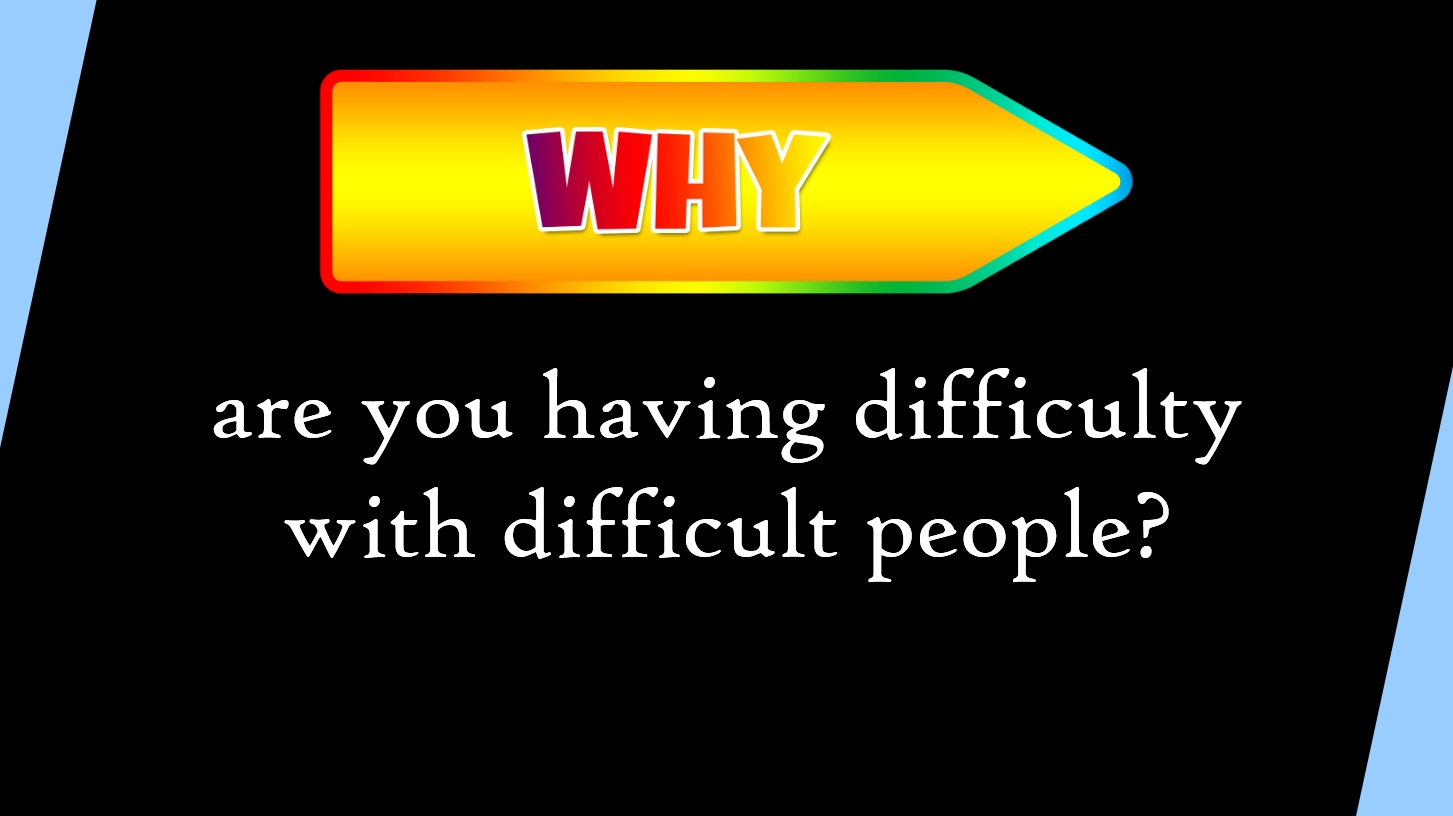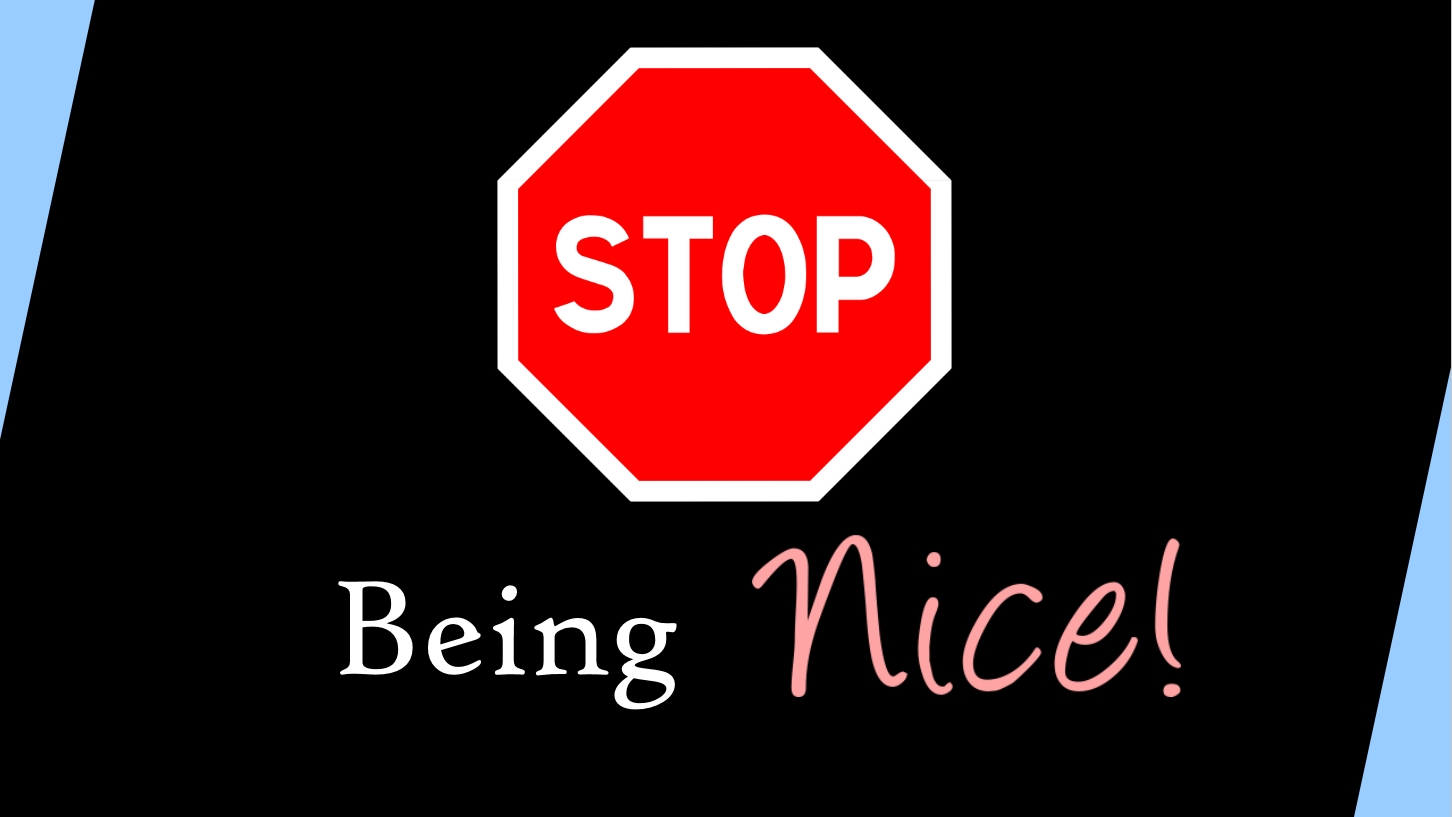On Saturday, I spoke at the World Success Summit, held at PSB Academy City Campus. It was a well-thought-out affair, hosted in a beautiful venue.
Each of us speakers had 15 minutes to talk about his/her topic, all how-to topics, and the one given to me was ‘How to Deal With Difficult People’.
I thought I’d post what I had originally written. Obviously, having the P aspect of my personality (from the MBTI), I didn’t follow even my own script exactly. I am prone to impromptu deviations.
Nevertheless, here it is:
Good afternoon ladies and gentlemen, we’ve had an excellent lunch.
Let’s get to the topic at hand – How to deal with Difficult People.
It so happens that I am the right person to talk to you about this, because of one reason. I am a difficult person.
Let’s talk about that.
What this means is that I am very certain of what I want and what I don’t want.
So, I live my life the way I want to and do the things I want, when I want, in the way that I want.
I write the rules in my book of life.
Here’s the thing, though. I can’t just write anything. For example, I can’t have a rule that says, “When I’m angry, I punch somebody in the face.”
However, I can have a rule that says, “When I’m tired, I withdraw from ALL unnecessary social activities and obligations.
I am an introvert. I wrote a book about introversion called The Introvert Teacher. And I know that introverts need to be on their own – quiet time – in order to recharge. And I never apologise for taking that quiet time.
You don’t apologise for sleeping at night, right? This is no different. Rest comes in all shapes and forms.
So, if I’m tired, I will call up the organizer of an event I may have been supposed to attend, and I will explain that I won’t be attending because I don’t have the energy to be fun, or useful at the event.
Now, you are right to think that the organizer may get offended.
But that’s not my problem.
I am responsible for my own emotions, not the organiser’s. They are responsible for their own emotions. If they CHOOSE to be offended when I did not intentionally cause offense, then that’s not my issue.
Another rule in my book.
So let’s get back to this.
WHY are you having so much difficulty with so many difficult people?
You see, we, especially because we are in Asia, we have been brought up with certain phrases:
“Smile more.”
“Think about others first.”
“Be nice.”
Now, I’m not saying that these are BAD principles to live by. I am saying that these are problematic if you don’t know what to do with them.
Especially that last statement: Be Nice!
I put to you that a majority of your problems are there because you are TOO nice.
So, how do we deal with difficult people?
STOP being nice!
Let me explain what I mean.
I’m not asking you to be mean, to shout at others, or to mistreat people.
No.
I am asking you to stand up for yourself and your beliefs, to stand firm on your decisions, and not care about others’ opinions of you.
Your worth is not predicated on what other people think about you.
Your worth is based on your substance, on who you are.
Let me give you an example. My example.
I’m married. My wife is, unfortunately, not here today. She’s overseas.
My wife works with children with special needs.
You can imagine, then, that someone who does that will be a giving, compassionate person with a big heart. Do you think that someone like that will choose to live the rest of her life with someone who is selfish, arrogant, rude, unkind?
If you’ve met Rahul and Jit, organisers of today’s meeting, do you think that they would want to work with someone who is incompetent, abrasive, mean, uncaring, put him on a stage and allow him to speak to an audience that they have painstakingly invited to be here?
Well, ask them yourselves.
At the same time, I invite you to ask them 1 more question:
“Is Remus nice?”
And they will unhesitatingly tell you, “No.”
What I’m trying to say here is that you don’t have to be “Nice” in order to be generous, giving, selfless, kind, compassionate, or loving.
Nice-ness is, after all, a social construct.
It’s a set of rules and guidelines put together by a few people to govern many. Society’s rules, so to speak.
Religion, sex, politics. Is it easy to talk about these things? No. They are divisive. And people don’t like to be divisive. They would rather be accepted and blend in. Most people, anyway.
So what happens? Misinformation. Disinformation. Anything but good information is spread further and faster.
Because no-one wants to rock the boat and talk about the hard stuff. Nobody wants to be the odd one out. Nobody wants to be ostracized.
And we all suffer as a result. Society suffers as a result.
Nice-ness is a disease.
It spreads and contaminates everything, turning everything into boring, bland, mundane things.
Go to any hawker centre and you will find 2, 3, 4 chicken rice stalls.
If I did a blind test on you, you probably won’t be able to tell the difference between any of these stalls. Boring.
Prices? The same. About $3.50. Nothing unusual.
But what if one of them does something different? What if one of them decides to use premium chicken flown all the way from Japan, with organic rice from a remote village in Cambodia, high quality ginger and garlic from Thailand, superb chilli from a special farm in Malaysia? What if that stall charcoal roasts the chicken, serves it with 8-hour-boiled soup, and serves it at the perfect temperature every time?
Is it going to still cost $3.50? Definitely not. It’ll cost much more. Let’s say twice as much. $7.
Now, obviously, they are going to lose customers who want to or have to only pay $3.50. But those who are willing to pay the $7 for such unusual quality, don’t you think they’d be better customers?
They’ll Instagram it, bring their friends, blog about it, talk about it. Because it’s different. It’s also harder to afford. But it’s good.
So why don’t chicken rice stalls do that?
Because they are afraid of sticking out, they don’t want to put in the extra effort, they just want to sail along.
Anything wrong with that? Of course not.
But they’ll always be un-remarkable.
Because they want to play nice and play safe and not spoil the market or do anything too different or attract negative comments from their family and friends.
Finally, I put to you that Nice-ness is holding you back.
If you are a boss, an employer. And you are too nice, maybe that’s why your employees are walking all over you, coming in late, taking long breaks, being unproductive. Discipline them or fire them. Stop being nice!
If you are an employee. And you are too nice, maybe that’s why your colleagues are pushing their work to you, maybe that’s why your boss doesn’t respect you and keeps giving you extra duties. Learn to say no! Or quit! Either way. Stop being nice!
If you are a business owner, an entrepreneur, a freelancer. And you are too nice, maybe that’s why you keep getting paid late, your clients are hard to handle. Get rid of these problem clients. Fire them. Stop being nice!
I don’t have a lot of difficult people in my life. Because I got rid of them.
But to do that, I had to change. I had to become different. To some people, that’s the same as being difficult. I don’t care. I’m not nice.








